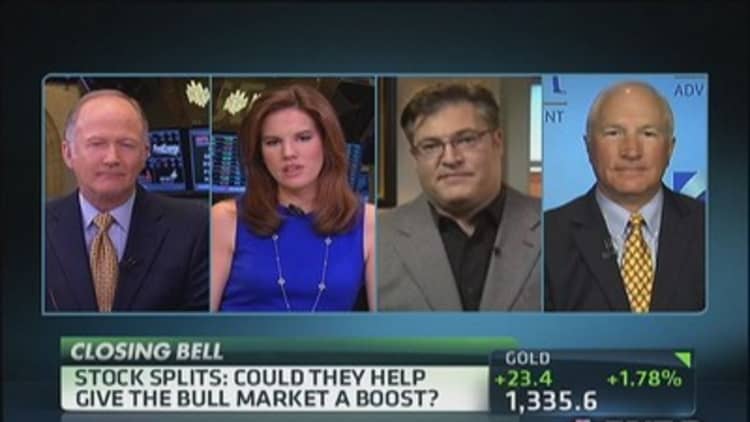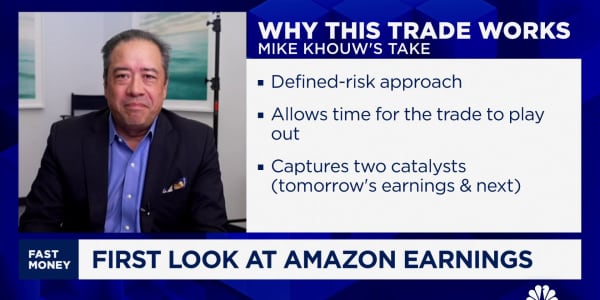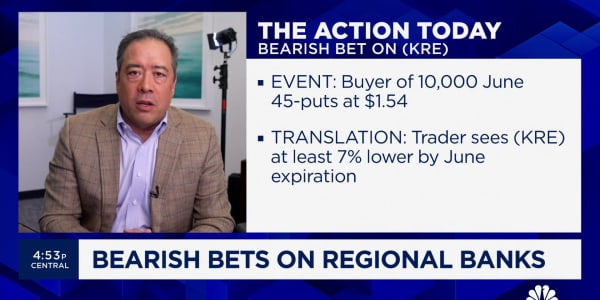MasterCard announced this week that it will do something that's become increasingly rare: split its stock. Despite a rising market that has lifted share prices and introduced the S&P 500's first two above-$1,000 stocks, investors shouldn't expect to see a rash of companies follow suit.
(Read more: MasterCard to split shares; raises dividend by 83 pct)
The number of splits has plummeted in recent years. Within the , there were 102 splits in 1997, and nearly as many in 1998 (though that still doesn't touch the whopping 114 in 1986). By comparison, only 11 stocks split in 2013, though two more are planned by January, according to S&P Dow Jones Indices. MasterCard's split is planned for January.
Of course, a split doesn't technically mean much for a company or its shareholders. In a 2-for-1 split, for instance, shareholders will end up with twice as many shares, but they will be worth half as much. MasterCard's 10-for-1 split will grant 10 shares for every one held by investors.
"The academic literature is very clear that stock splits and the price of a stock don't have any impact on the total value of a company," said Nicholas Colas, chief market strategist at ConvergEx. "If you're pitching a split to the board, it's going to be very hard to prove that it presents any systematic advantage for the company."
But there are some advantages for small investors. As Dash Financial strategist Michael Khouw points out, splits of large dollar-value stocks allow retail investors the ability to easily buy round lots (multiples of 100 shares) rather than odd lots, thus potentially receiving a more advantageous execution.
"In general, whenever the prices for securities go down, that tends to benefit retail participants, because it keeps their trading expense relatively small," said Khouw.
Lower share prices can therefore allow retail investors to buy shares of a company in a round lot without reaching deep into their wallets.
High stock prices mean that "either you don't get to trade what you want, or you do get to trade what you want but you do so inappropriately," Khouw said. "So share splits, in this case, make sense."
(Read more: Cramer: Stock splits don't matter, right? Wrong!)
Because stock splits allow retail investors to get in more easily, "one of the lay-up trades was to buy stocks that were about to be split, due to the incremental demand from 100-lot orders," Colas said. "It used to be a very vibrant strategy."

Jon Johnson certainly remembers those days. The chief market strategist of StockSplits.net, Johnson founded the subscription service that informs investors when a stock split is likely to be announced or has just been announced.
"When we founded StockSplits.net in late 1998, a stock would start to split and it would go nuts—or in anticipation of a split, it would go nuts," Johnson said. "These companies like Dell would split their stock rapidly and it would just appreciate right back up. They would say, 'Hey, that's free money!'"
Indeed, from October 1995 to March 1999, Dell executed an incredible six 2-for-1 splits, including two in 1998 alone.
Times have since changed. And Johnson blames the demise of the excitable retail investor.
"The stock market isn't talked about like it used to be. You used to go to a cocktail party, and it was like, 'You see this stock, you see that stock?' It's not that way anymore," Johnson lamented. "There are still retail investors, but they're the hard-core guys, and stock splits don't impact them the same way."
"Retail investors are older, and they are certainly savvier now," Colas agreed. "They understand that the number of digits in a stock price does not indicate anything about the value of a company."
But something else has changed. The investment landscape has gotten friendlier to retail investors.
"The current market structure does allow retail investors to get very efficient execution in high-priced stocks in odd lots," Colas said.
And while high-priced stocks used to be a retail options trader's nightmare, given that each options contract covers 100 shares, new mini options (currently offered on Google, Apple and a few other stocks) allow individuals to trade options controlling just 10 shares each.
"In the high dollar stocks, mini options are the best way for participants to play and not outsize themselves," Khouw said. "The market has evolved."
(Watch: Mini Options Start Trading Next Week)
With investors losing both their taste and much of their need for stock splits, such events shouldn't be expected to become commonplace again anytime soon.
"It kind of fell out of vogue," Johnson said. "Now you've just got a different mindset in the market."
—By CNBC's Alex Rosenberg. Follow him on Twitter: @CNBCAlex.
Follow the show on Twitter: @CNBCOptions.






